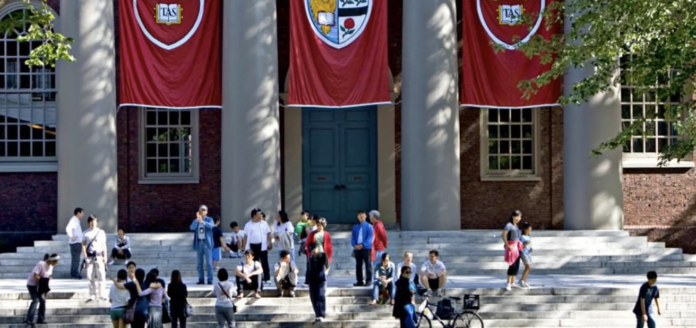Over 100 Harvard professors have formed the Council on Academic Freedom in order to protect free speech on campus and to prevent censorship during this “crisis period.”
Steven Pinker is the co-founder of the Council and a Harvard psychology professor. He published an opinion piece in the Boston Globe this month, stating that “confidence in American Higher Education is sinking,” largely due to “the impression universities are suppressing differences of opinions.”
Pinker wrote that “it has been stoked” by videos showing professors being mobbed and cursed. They are also heckled and beaten into silence.
Harvard Professor noted that institutions that censor faculty and students will “inevitably provide erroneous advice on vital issues such as pandemics and violence, gender and inequality.”
In an op-ed published on April 12, Pinker revealed that he, along with 50 other Harvard colleagues, had created a council to protect academic liberty. According to Jeffrey Flier, co-president of the council and a medical school professor, the size of the council has almost doubled since the article was first published.
He said that while he served as dean at Harvard Medical School between 2007 and 2016, he began to notice an increase in attacks on freedom of speech.
Flier stated that Ivy League Professors formed the Council to create a group of people who could protect academic freedoms and stand up against censorship.
“When the next incident occurs, this group will take action behind the scenes as well as publicly. “I think the game will change when it happens,” he said.
Janet Halley is a law professor and feminist legal theorist. She told The Post that she became a member of the council because she had seen countless professors being targeted nationwide for their speeches.
Halley said, “We’re in a time of crisis right now.” “Many people are threatened and even put through disciplinary procedures for exercising their academic freedom and free speech.”
She added, “Many people believe that they have a right not to be insulted [on campus], so they will complain.” It’s difficult for universities to stop the wheels of disciplinary action from turning.
Ned Hall, co-president of the Council and a philosophy professor, stated that members are “resolutely partisan”.
Some people may interpret the phrase “academic freedom” as a code word for “right-wing.” “But it’s not,” he said.
Hall is of the opinion that most students support free speech on campus, and those who advocate censorship are a vocal minority.
Hall told The Post that “most students come to Harvard with the intention of having a robust conversation and being guided by our professors.” Hall told the Post that students have often said to her, “I’m interested in having conversations on hot topics but I don’t feel comfortable.”
Hall continued, “You need to be able train citizens that know how to work together in a community.”
According to a recent survey by the Foundation for Individual Rights and Expression and College Pulse, only 27% Harvard students think that shouting at a speaker who they disagree with on campus is not acceptable.
According to FIRE, there have been over 1,000 attempts to sanction the speech of academic professionals in the United States from 2000 to 2022. FIRE reported that nearly two thirds of these attempts resulted sanctions, including 225 terminations.




